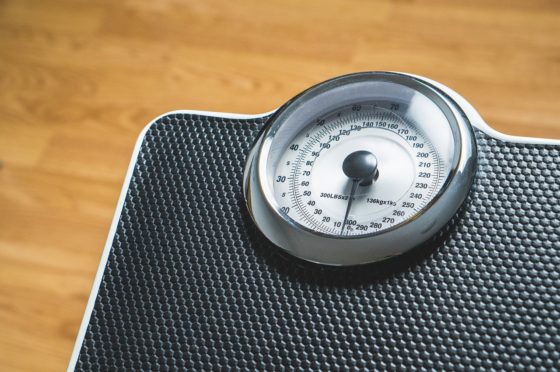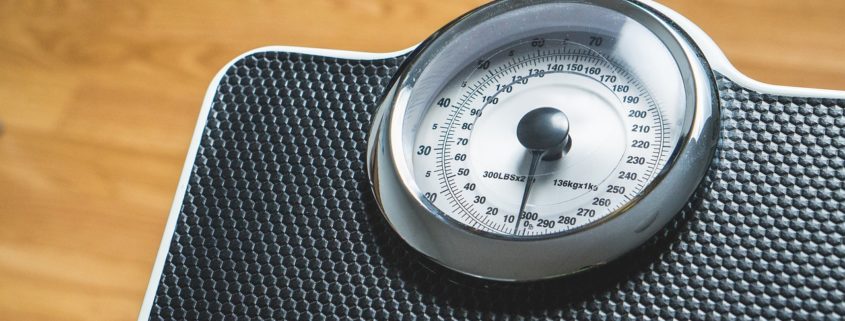Can Obesity Before Pregnancy Cause Cerebral Palsy?

So, how do you know if you are obese? What sort of risks may you be carrying on to your child?
One measure of obesity is through the calculation of Body Mass Index (BMI). Anyone with a BMI over 30 is generally considered obese. Obesity may also be measured by percentage of body fat. For women, a body fat percentage of 32% or higher is the range for obesity. The Centers for Disease Control and Prevention (CDC) recommends that obese women gain no more than 20 pounds while pregnant with one baby. That said, anyone who is underweight before pregnancy (BMI less than 18.5) should gain 28-40 pounds.
In this post, we’ll take a deeper look at obesity’s link to childbirth issues along with optimal ways to manage your weight both before and after pregnancy.
Contents
Obesity and the Cerebral Palsy Link
Cerebral palsy is a neurological disorder that may profoundly affect motor coordination and muscle development. The disorder arises from an injury or trauma to a developing brain and may occur before, during, or after a child’s birth. Since the late 1990s, cerebral palsy in infants has been on the rise, which may correlate to the simultaneous rise in obesity rates.
While a BMI of 30 is considered obese, it is mothers classified as morbidly obese (BMI of 40 or higher) who stand the highest risk of giving birth to a baby with cerebral palsy. In a Swedish study published in the Journal of the American Medical Association, among women with a BMI of 40 or greater, the prevalence of cerebral palsy in babies was approximately 5 in 10,000. This number was twice as high as that of women who had a healthy BMI below 25. At the same time, neither number represents a statistically significant amount of cerebral palsy cases. Therefore, the study should not be cause for alarm but rather motivation for awareness and lifestyle modification.
Other studies have returned similar findings. Physicians at the University of South Carolina School of Medicine conducted a study of obese pregnant women with regard to both cerebral palsy and epilepsy. While the study proved no link between obesity and epilepsy, it did find a connection between obesity and cerebral palsy. It was observed that a higher BMI corresponded to a higher rate of infant cerebral palsy. Women with a BMI of 40 or higher again demonstrated the highest likelihood of giving birth to a child who developed cerebral palsy.
According to the physicians who conducted the study:
A significant association between increasing maternal body mass index and any diagnosis of cerebral palsy was found.
While more studies are needed, achieving a healthy pre-pregnancy weight is both advisable and doable.
I’m obese and pregnant. What do I do?
First, become educated. There are numerous risks associated with prenatal obesity, like gestational diabetes, which may also be linked to depression. Prenatal obesity also can lead to the child developing weight problems later in life. Hypertension and heart disease are other issues that may occur in obese mothers-to-be, and the dangers of spontaneous abortion and stillbirth are elevated, as well.
We all know that losing weight can be difficult and frustrating. And it’s not an illusion that men lose weight more easily than women. Due to the amount of estrogen women produce, losing weight can feel like an uphill battle. But it’s not impossible, and it may be easier to do before becoming pregnant.
Breastfeeding has been shown to facilitate weight loss after delivery. But here are a few ways you can get closer to a healthy weight before you even conceive!
Reduce Your Sugar Intake
Yes, sugar really is the enemy and it’s virtually everywhere, ambushing supposedly healthy foods like protein bars and even whole-grain bread. Unless you’re diabetic or pre-diabetic, there’s no need to slash sugar completely from your diet. Rather, avoid sugar in liquid form (soda, sweetened coffee beverages, and anything with high-fructose corn syrup). If you want to make an even bigger impact on your weight and health, there are plenty of sugar detox programs to help you succeed. (Just make sure you check with you doctor before starting any weight-loss or exercise program.)
Do Some Gentle Exercise
There’s no need to do anything extreme (like cardio kickboxing), and intense exercise can actually do more harm than good. A refreshing 45-minute walk, an hour of dancing in your living room, or a bike ride around town are all easy, enjoyable ways to get the blood and metabolism flowing.
Reach for a Book at Bedtime
But not an e-book! Many studies have shown that the blue light from our smartphones disturbs our natural circadian rhythms, keeping us up at night and contributing to weight issues. So, reach for a good, old-fashioned book instead of the smartphone … or a bedtime snack.
Stay Extra Hydrated
Hydrate with pure water. Fruit juices contain too much sugar to be considered a healthy option. Besides, nothing is more effective at hydrating us than H2O. But if water isn’t palatable for you, then pour yourself a cup of tea. Certain teas, like red raspberry, have been used as fertility enhancers. Whether it’s a cold glass of water or steaming mug of tea, staying extra hydrated will prevent your body from retaining water and help you lose weight.
Laugh!
Yes, laughing burns calories (up to 50 per day if you laugh for 15 minutes)! But more importantly, laughter reduces stress, which in turn reduces cortisol levels that contribute to obesity. So, laugh a little now … and get ready to laugh a LOT when your sweet, cooing baby smiles at you for the first time!
Do you have any tips for healthily losing weight before pregnancy, or making sure you don’t gain too much weight during pregnancy? Share with us in the comments!








Leave a Reply
Want to join the discussion?Feel free to contribute!